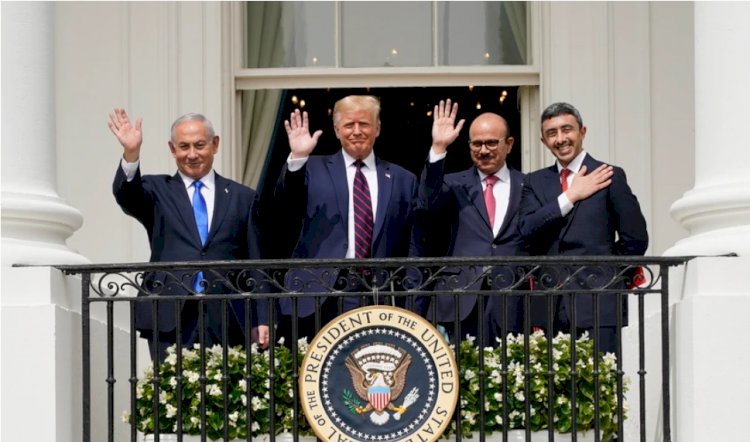Trump or Biden, Arabs May See New Regional Order Emerge, Analysts Say
Writing in the Jordan Times newspaper, he says that such an alliance could tackle threats posed by Iran and Turkey.

Trump or Biden, Arabs May See New Regional Order Emerge, Analysts Say
AMMAN, JORDAN - Political analysts say regardless of who wins the U.S. election, a new regional alliance could emerge in the Middle East following Israel’s peace deals with the United Arab Emirates and Bahrain, with perhaps more to follow.
Middle East analysts anticipate the U.S. decreasing its military presence in the region, while backing a proxy Israeli-Arab alliance to confront growing threats posed by Iran and Turkey.
Jordanian analyst Osama Al Sharif says if President Donald Trump wins a second term, we could possibly “expect to see a new normal” in the Middle East “where Israel would emerge as the backbone of a new regional alliance.” Writing in the Jordan Times newspaper, he says that such an alliance could tackle threats posed by Iran and Turkey.
“Gulf countries, in particular, see both countries as expanding their influence in the Arab region and as posing an existential threat.” This policy would also witness “the disengagement by Israel’s new allies from what used to be the central Arab cause; the Palestinian Question,” he writes.
Al Sharif says that a Biden presidency would likely “reset the course” of Washington’s policy -- to resolving the Arab-Israeli conflict by resuming “aid to the Palestinian Authority and reopen a U.S. consulate to deal with the Palestinians in East Jerusalem.”
But he says the U.S. embassy in Jerusalem would stay and there would be “minimum engagement on a two-state solution” to the crisis. The Biden campaign has hinted that the U.S. could return to Joint Comprehensive Plan of Action nuclear deal of 2015, if Iran recommits,” he says.
Oraib Rantawi of the Al Quds Center for Political Studies in Amman sees a “carrot and stick” approach to Iran should President Trump be re-elected.
“I don’t think there would be a need for a new strategic alliance between the Gulf and Israel to confront Iran. The inclusion of Iran, the integration of Iran in the international community and the world markets will be the approach," Rantawi said. "This process may change the policies of the Iranian regime more than sanctions. A few Arab countries are very worried to see the Democrats in office, especially Egypt, Bahrain, the Emirates and Saudi Arabia because of human rights issues, their military adventures in the region, the humanitarian disaster in Yemen.”
Salah Nasrawi, writing in Egypt’s Al-Ahram newspaper, expressed concern that whoever occupies the White House needs to counter the rising presence of Russia and China which are “contesting U.S. power in the Middle East through a combination of political and economic influence.”
An active role taken by the U.S. on addressing terrorism threats and finding ways to end conflicts in Iraq, Libya, Syria and Yemen “could jolt the Middle East of out of its current geopolitical stasis,” he says.
VOA







































